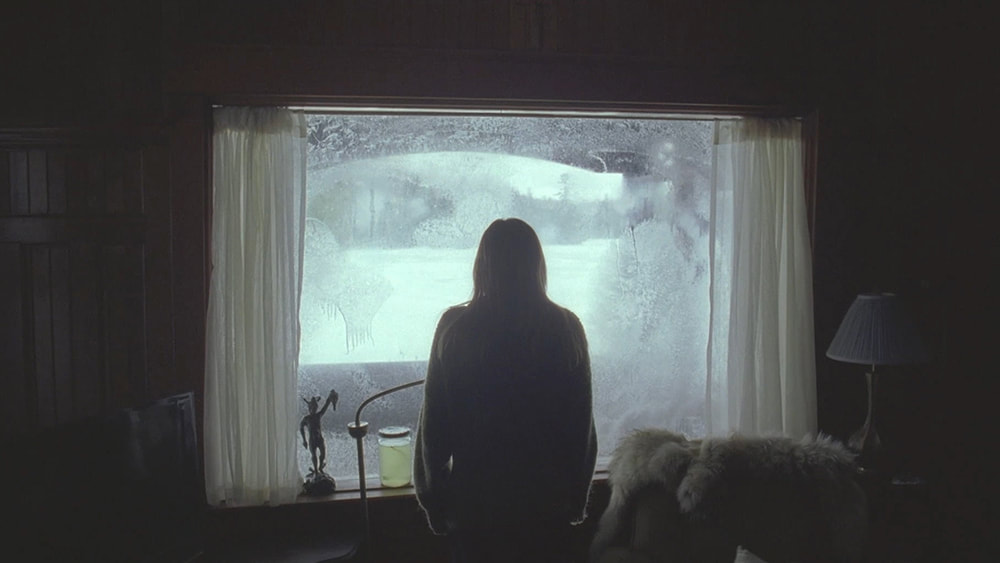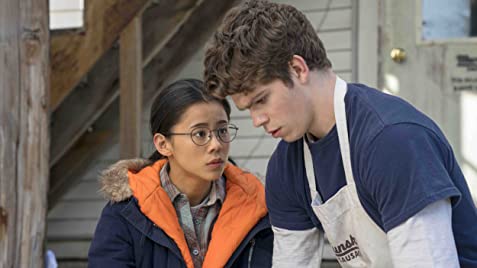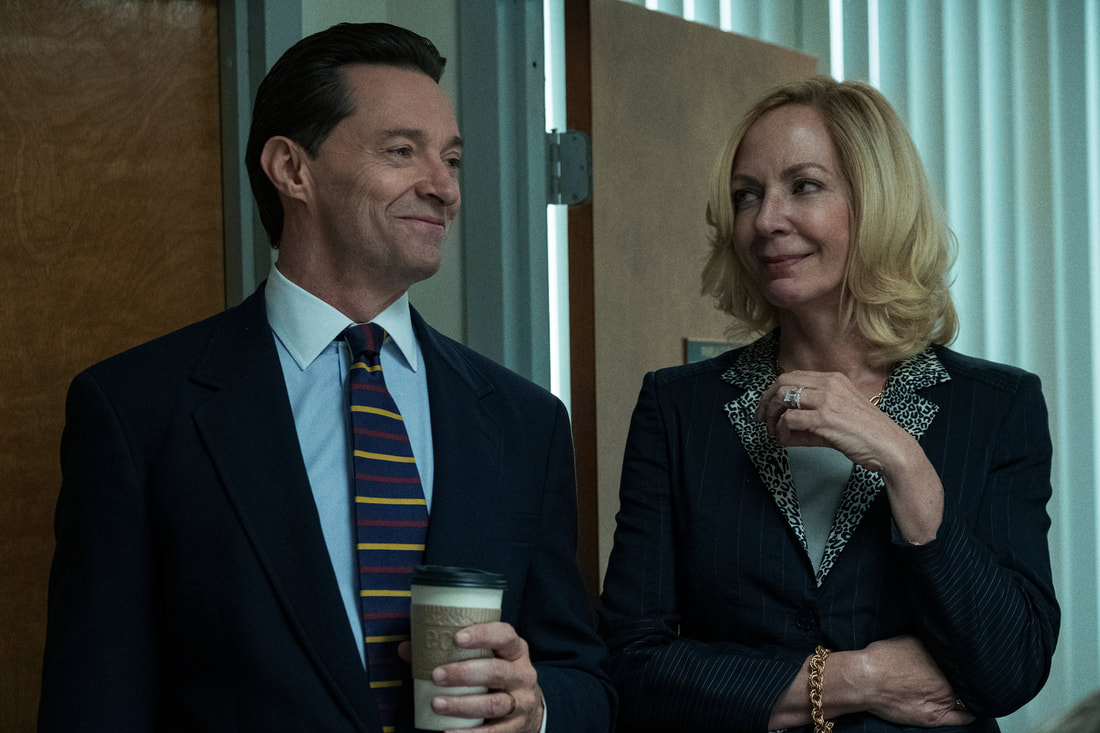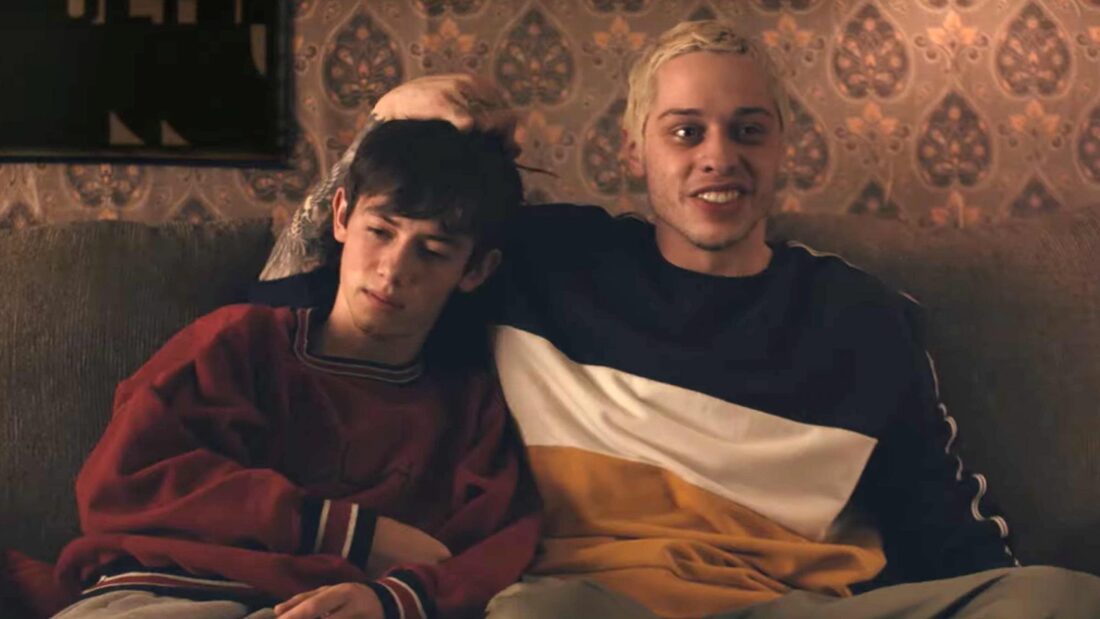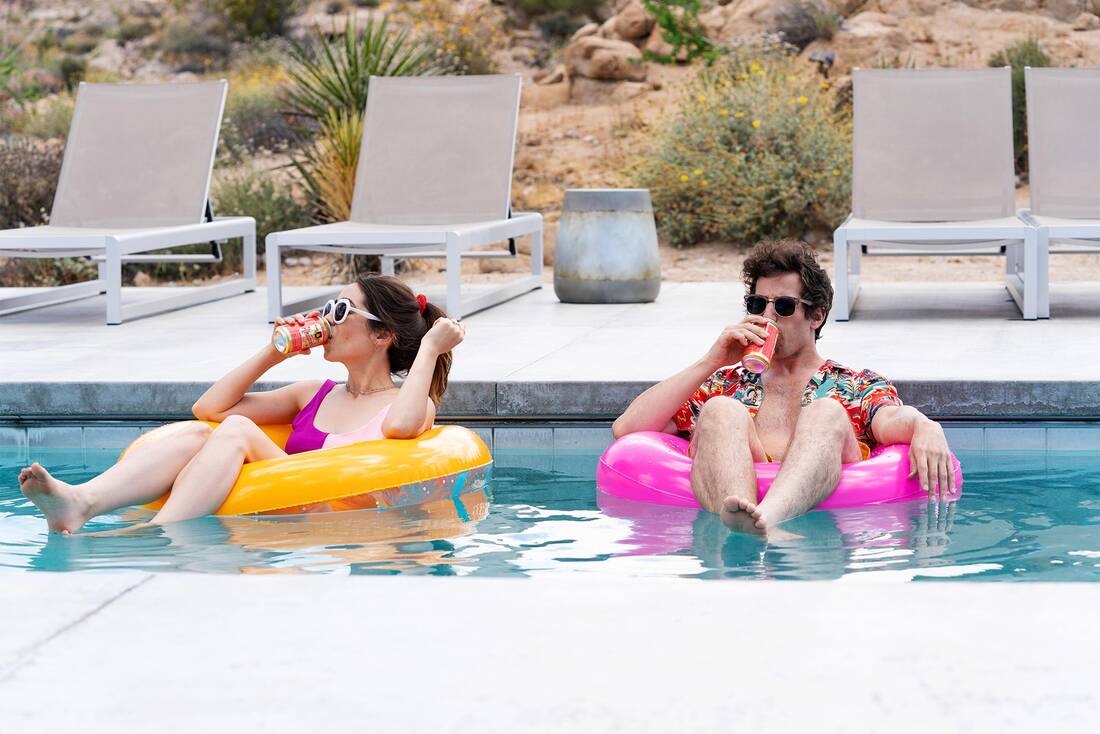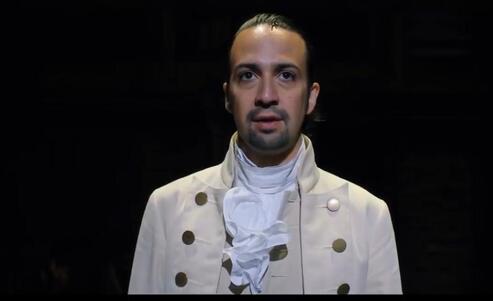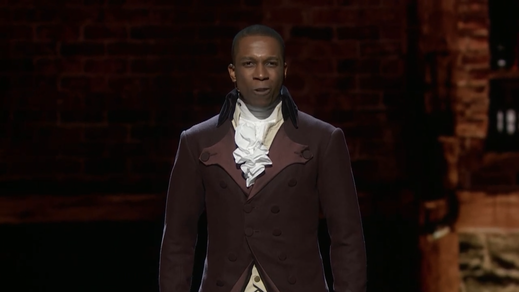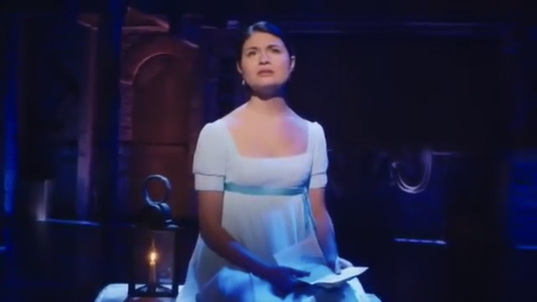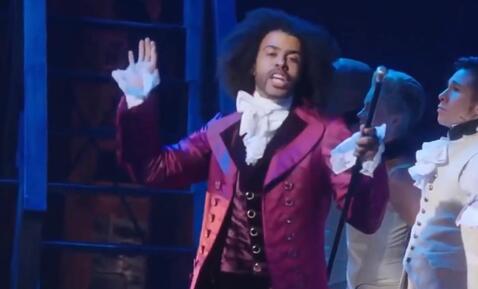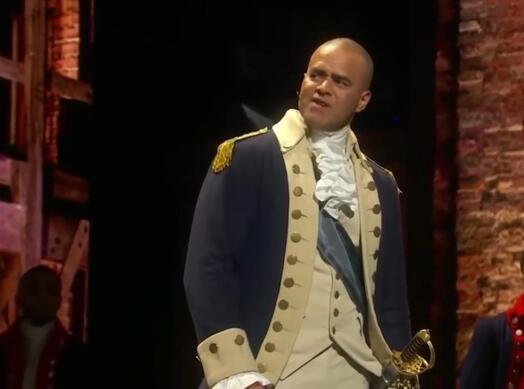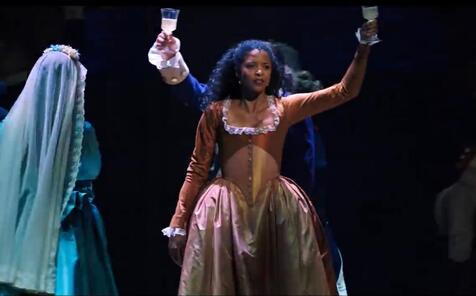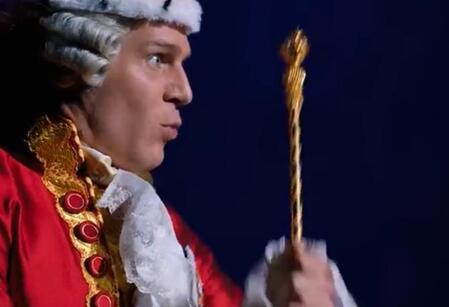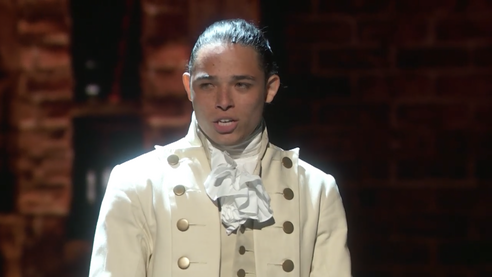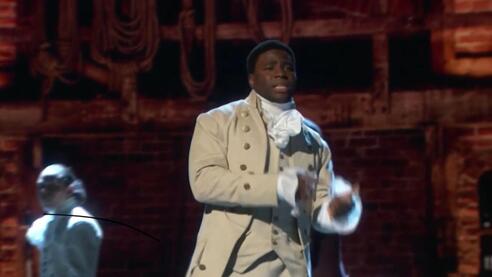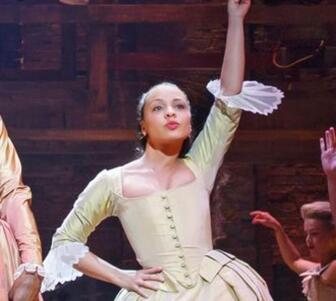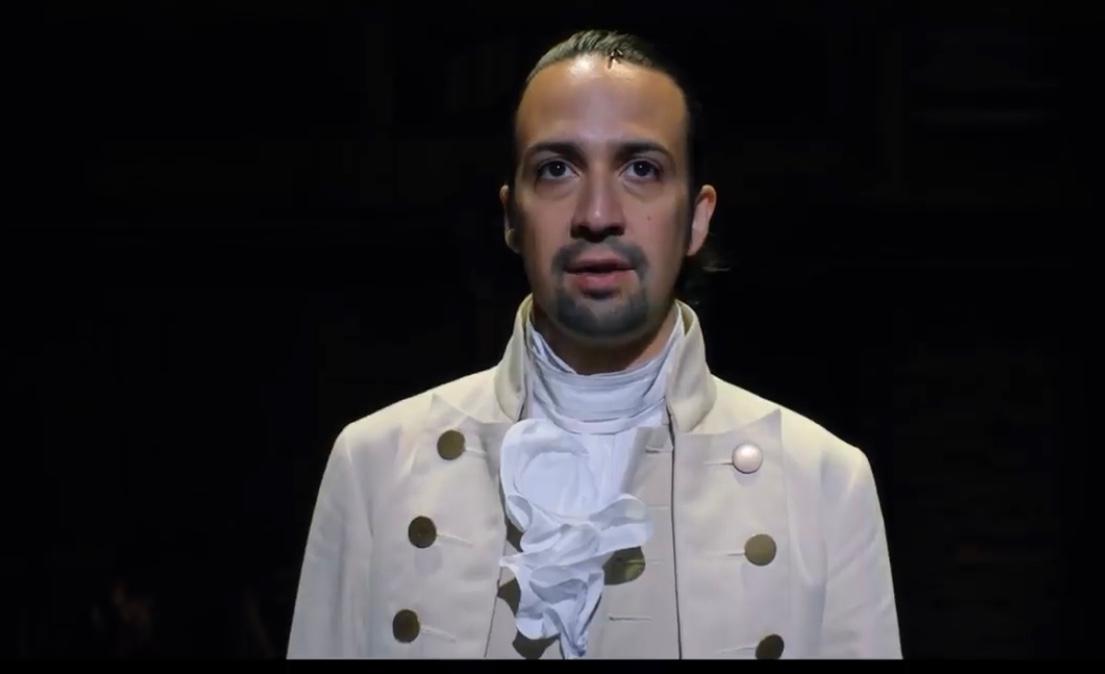|
by Philip Price Director: Severin Fiala & Veronika Franz Starring: Riley Keough, Jaeden Martell & Lia McHugh Rated: R Runtime: 1 hour & 48 minutes Though I’m unaware of the status of the Catholic church in Austria or if writer/directors Severin Fiala and Veronika Franz were raised in the faith, what I do know is they seem to believe there is something severely fucked up about the level of veneration involved in the traditions of the faith; a reverence that combines ill-advised symptoms like blind conviction and fear mongering ultimately convincing followers they're of the "chosen" variety while threatening them with the idea of eternal damnation to insure they don't stray too far from the pre-ordained beliefs and practices.
I say Fiala and Franz feel this way as their second narrative feature “The Lodge” focuses on a young woman, appropriately named Grace (Riley Keough), who is the lone survivor of a suicidal cult, but the buck doesn't stop there as said cult was run by none other than Grace's father. Again, I say the film focuses on the character of Grace, but as a viewer sitting down to watch this film after reading this review one might think I was making as much up given audiences are first introduced to the Hall family consisting of father Richard (Richard Armitage), mother Laura (Alicia Silverstone) and children Aiden (Jaeden Martell) and Mia (Lia McHugh). Richard and Laura have separated, but Richard is presently seeing someone else (you guessed it, Grace) and Laura - to say the least - is not coping well. All of THIS to say “The Lodge” really isn't any of their movie despite the first impressions. This is Grace's film and it's a shame Fiala and Franz don't make it a point to make her movie sooner. “The Lodge” seemingly wants to examine the impact of such extreme trauma and conditioning by cults who have the ability to conjure such devotion that they can convince the majority of their following to take their own lives while continuing to live on in the consciences of those who couldn't bring themselves to do it even after escaping said environment. This is the fragile mental state in which Grace enters the picture as this new, potentially maternal figure to these two children who couldn't despise her more. While the circumstances are less than ideal and don't wholly make sense from the perspective of either Grace or Richard the bigger picture isn't initially apparent thus allowing the viewers some grace in buying into the admittedly engaging set-up. It is how Fiala and Franz guide their narrative that makes the film less chilling and more bewildering as “The Lodge” slowly reveals itself to be an empty shell playing on the notions of more grounded, deliberate horror films that have come before. That isn't to say everything “The Lodge” offers is more style in service of little to no substance, but Fiala and Franz would have one believe the exact opposite as if every aspect of their film's construction is specific and intentional. Despite this facade though, the events that come to transpire couldn't feel less exact as the writer/directors very clearly want to discuss the type of guilt and conflicted sense of self that arises from never being able to travel outside the brim of structure that religion paints around those brought up in radical denominations, but are never able to find a way of materializing these themes and ideas. Much like writing, it’s easy to sit down and know what you want to write about, but it’s a lot harder to create something that actually embodies those ideas in a clear and concise form; a true representation of the thoughts you hoped to convey. Instead, “The Lodge” boils down to a half-baked, uber-elaborate prank of a plot twist that makes zero to no sense when taking everything that has occurred prior into consideration. It's the definition of faking it till you make it, if you will, except The Lodge isn't able to make anything out of the iconography it shoves down the audience's throat as if to hope the mere presence of such images and symbols are enough to represent a meaningful interpretation. It's not. As someone who was raised in the Catholic church I will mention that anytime I would complain about having to kneel my, some would say steadfast others would say single-minded, Catholic mother would reply by asking me if I thought Jesus complained about having to be nailed to the cross which would instantly shut me up. So, upon seeing Grace deal with the hallucinations of her father and the guilt he could easily provoke causing her to go to such extremes as kneeling on burning logs in order to repent makes me not go so far as to say I "get it" as I certainly wasn't traumatized as a child, but the layers of guilt and fear instilled in this character make complete sense and it's in this facet Fiala and Franz find their most disturbing material. There were hints early on in the film that this type of trauma-induced terror is what would sustain “The Lodge” as the imagery during a funeral scene where Mia's balloon falls to the ground because the doll that represents her deceased mother is attached while everyone else's floats upward which is then immediately followed by a scene where Mia is crying and screaming that her mother "can't go to heaven," because of what Catholicism believes about suicide is simultaneously heartbreaking and genuinely disturbing. If only the film were to have explored these types of conflicts consistently through its parallel generations of traumatized characters rather than resort to a more standard horror movie trope “The Lodge” might have proved itself more a true savior of the genre rather than a false idol.
0 Comments
by Philip Price Director: Alice Wu Starring: Leah Lewis, Daniel Diemer & Collin Chou Rated: PG-13 Runtime: 1 hour & 44 minutes My wife, a teacher, always complains about the inaccuracies of high school depictions in movies and in this one we're barely six minutes in when the bell rings and an English teacher announces an assignment of 500 words on Sartre's use of "thwarted desire" to be due the following Monday. She announces this as half the class is out the door already and the other half aren't listening as they gather their things. "She could never hold any of them accountable for that," my wife comments, "not a single one of them are paying attention to her."
In this "love story where no one gets what they want" there are several trite aspects taken from any number of teen rom-coms you've seen before, but the core relationship that develops between our protagonist Ellie Chu (Leah Lewis) and her new-found friend Paul Munsky (Daniel Diemer) is an arc so naturally curated and performed that it's not hard to find the appeal of their relationship in their given circumstances even if it all takes place in the weirdest, most out of touch and geographically confusing Pacific Northwest town. While largely a straightforward love triangle narrative “The Half of It” features some of the weirdest tertiary choices in recent movie memory that are legitimately confusing when trying to make sense of them in the context of everything else going on. For example, I've never heard of a mandatory senior talent show. That's weird, right? Like, that would last at least 16 hours and on top of that, the actual talent show scene here is ridiculous. What prom king dildo is performing Berlin while dressed like Springsteen and how is an entire class of seniors in, let's say 2018 (meaning these kids were born in 2000), singing along to "Masquerade" (a song released in 1982) like it's nothing? On top of top of that, did jock boy Trig (Wolfgang Novogratz) provide everyone in the audience glow sticks prior to his performance or...? That's just the tip of the iceberg in The Half of It though, as apparently there are so few people that leave the fictional town of Squahamish that the daughter of a preacher (man, the young hotshot from Without a Trace got old) would feel compelled to marry the aforementioned golden boy jock at the end of their senior year of HIGH SCHOOL for lack of other options! I mean, that's weird, right? Like, I understand this is an adaptation of a play written in 1897 and there are probably some marriage proposals to distant cousins or something in the play, but c'mon...if you're going to adapt it to tell the story of a queer Chinese-American teenager living in small town, America then just worry about making the themes and ideas that made you want to adapt it in the first place translate and drop the extraneous complications that have little to no impact on the story. It's a lot of musings and tends to go on for a half hour more than it should, but I like, or more appreciate, the concentration on writing and the truth it shows in not simply being able to express one’s self better in the written word than speaking face to face, but the difficulty in shaping the right words to accurately express not just the meaning you want the recipient to receive, but the aura you want them to perceive. And although it goes against all my natural instincts of being an introvert how Ellie comes to realize and give into the idea that talking to others allows just as much insight into yourself as it does them is pretty special. It's kind of a weird ass movie that doesn't always make sense or care to explain itself even when it needs to, but I liked Ellie's dad (Collin Chou) and the English teacher (Becky Ann Baker) enough, despite my wife's early differences with her, to come around on the movie. That's not exactly a wholehearted recommendation, but you could call it a halfhearted one. by Philip Price Director: Cory Finley Starring: Hugh Jackman, Allison Janney & Ray Romano Rated: NR Runtime: 1 hour & 48 minites Cory Finley's “Bad Education” is so briskly paced and so increasingly engaging with every turn that you wish it were twice as long with twice the amount of detail. There is a single shot of Hugh Jackman after Allison Janney's Pam Gluckin stops on his eyes for confirmation of the angle, she needs to play that is top tier stuff that encompasses the work both actors are doing here. While I was somewhat lukewarm on Finley's debut feature, “Thoroughbreds,” “Bad Education” is undoubtedly one of the best films of 2020 thus far.
A cautionary tale of people with genuine ambition who take real initiatives to implement plans on top of plans to present how successful they are only to convince themselves they deserve more than their annual salaries allow. It's about people attempting to validate themselves within a system that inherently minimizes their overall contribution to the world. “Bad Education” is both a testament to the unsung heroes of the education system and a call to hold those in positions of power responsible for the power they've been granted. What makes the film so satisfying though, is that it somehow manages this balance in an even fashion by becoming a character study of the multi-faceted Frank Tassone. Jackman's portrayal of superintendent Tassone first convinces the viewer that he's a true educator through and through before revealing it is this same charm that convinces us of as much that is also weaponized to blind those around him to the indiscretions he's committing. Jackman plays the character as someone who knows how to interact with people by scanning them upon meeting them and figuring out what type of person they want in their life and becoming that person; this works out all the better when the person he's meeting can assist in Frank accomplishing Frank's vision. Tassone becomes so comfortable in this space that it is ultimately by his own boldness and confidence that he is undone; the decade plus of planning and scheming making it all the more tempting to prove just how far he can push things, to prove just how much he can pull one over on the people who think they know him best. It's a masterclass of casting and performance as Jackman's universal reputation as being the most likable person on the planet allows the audience to feel more sympathetic to not only Tassone's actions, but his reasoning and justifications for them. Janney's Pam serves as the only individual we see Tassone let his guard down around while Pam almost becomes the one, we offload all the blame onto as her motivation feels less like justifications and more like excuses. Naturally, Janney charms the pant suit off the role as this woman who had to work hard to get to where she'd landed and, as is the case with most of us, was conditioned to believe she was entitled more to what she believed she deserved after working as hard as she did than what she'd been given. Finley utilizes the structure of Mike Makowsky's (who attended the school where the real events occurred) screenplay to unravel the multiple layers of this dark and biting tale while reducing the stylistic impressions he displayed in “Thoroughbreds” in favor of a look and style that more closely mimics that of our anti-hero. And while Abels' aforementioned score is astoundingly fitting the choice to roll the credits to Dido's "White Flag" is the pitch perfect kibosh on this story of a man so convinced of his direction that he was never going to let anyone else take the wheel no matter how many violations he disregarded or accidents he caused: "I know I left too much mess and Destruction to come back again And I caused nothing but trouble I understand if you can't talk to me again And if you live by the rules of it's over Then I'm sure that that makes sense" by Philip Price Director: Jason Orley Starring: Griffin Gluck, Pete Davidson & Jon Cryer Rated: R Runtime: 1 hour & 31 minutes "The drive-thru lady knows your name?"
"Hell yeah, little homie." "Sick." Pete Davidson plays the guy who if he had half as much drive and ambition as he did charm and wit would be the complete package really well. Given both this and “The King of Staten Island” there is undoubtedly some comfort level and truth to this type, but the way he capitalizes on this niche in “Big Time Adolescence” is done so in that age old fashion that genuinely makes you hate yourself for even warming up to the guy because the type is so predictable, but so appealing that you feel bad for how much of a waste his life's become. No, this isn't necessarily anything we haven't seen before, but it deals with these cyclical, youthful tropes in a present and direct fashion. "Well, my best friend Zeke, do you know him? He used to go to our school...he was like a big deal back in the day, but...yeah, he kind of invented these parties." "He invented hanging out in basements?" The ensemble doesn't hurt either though, as it's nice to see Oona Laurence (“Southpaw”) continuing to book work and she does great work in her limited role here as the more mature, well-balanced female our protagonist has a crush on, but can't quite keep up with. I still don't care for Machine Gun Kelly, but he's here too and will seemingly be following Davidson around for the foreseeable future. Jon Cryer both plays into and against type as the dad of Griffin Gluck's Monroe who continues hanging out with Davidson's Zeke long after him and Monroe's older sister break-up. This leads to the crux of the film in that, upon meeting one another Zeke was 16 and Monroe or "Mo" as everyone calls him was probably 10 or 11 and so Mo naturally idolizes this guy who can drive, get fast food whenever he wants, who makes out with girls and who was legitimately popular. Fast-forward to when Mo is the age Zeke was when they first met and Mo is beginning to think about his future while Zeke does little more than drink, smoke pot and reminisce about the past. "It's actually one of my favorite artists working right now. All of his stuff sort of makes fun of the over-commercialization of the art market. It's fascinating stuff." "Yeah, bro it's...it's mad orange." Fortunately, in this iteration of this timeworn tale writer/director Jason Orley concentrates not so much on the arrested development of Zeke, but more on the dynamic between he and Mo who is coming to realize that if he continues down the path he's on and continues to follow in the footsteps of Zeke that he's going to wind up in the same place as his "older brother"; someone who has long since piqued by 23 with little to no substance to their character and a routine that will expire within the next two years if not sooner. That Orley approaches this largely from the perspective of Gluck's Mo allows for the realization to be more impactful as it's more of a firsthand account of this crisis between loyalty and self-preservation. This is a choice most will identify with and seeing Mo deal in this revelation where no matter his loyalty, the approval and validation he receives from Zeke will always only come in the form of Zeke being responsible for his successes is one that slowly chips away at the perceived charm and appeal. "There's more to life than scribbles and dicks." "No, there isn't." It is heartbreaking as Mo comes to terms with the fact the only reward he’ll ever receive for his loyalty is the continued presence of Zeke in his life, no matter how detrimental this seems to increasingly be or what a treat Zeke seems to think it is for him. Thankfully, rather than retreating to simple affirmation and renewed outlooks, Orley opts for the messiness of real-life consequences and harsh realities as he smacks Zeke in the face with the ugly truth that Mo only hung out with him to feel cool, that he was only hanging out with Mo to feel the same and worst of all, that one day Mo would figure it all out and realize he was the last person on earth who thought Zeke was cool. "This time I just want to tell you how much I like you and not take Zeke's advice because let's face it, Zeke's advice can only get me as far as Zeke." by Julian Spivey Director: Max Barbakow Starring: Andy Samberg, Cristin Milioti & J.K. Simmons Rated: R Runtime: 1 hour & 30 minutes “Palm Springs,” directed by Max Barbakow, is a nice little addition to the “stuck in a time loop” theme.
The film, starring Andy Samberg and Cristin Milioti, premiered at the Sundance Film Festival in late January and was acquired by Neon and Hulu for $17.5 million, a record for a film being sold out of Sundance. Samberg plays Nyles, a man stuck in time on the wedding day of Tala and Abe. He’s there because he’s the boyfriend of one of the bridesmaids and it’s never truly mentioned just how long he’s trapped in the time loop once the film begins, but it’s been so long he’s truly stopped caring and just content living out his days floating in the pool and drinking beer. In his possibly gazillionth time at Tala and Abe’s wedding he swoops in to give a toast to the bride and groom saving the drunk maid of honor and Tala’s sister, Sarah, in the process. Nyles and Sarah hit it off and while in the middle of a romantic moment Nyles is shot in the shoulder with an arrow by an older gentleman named Roy, played by Oscar-winner J.K. Simmons. Nyles and Roy both escape to a cave and are followed by Sarah, who enters the time loop too as a result. The story as to how Nyles and Roy form this feud is one of the most interesting scenes of the movie, but the absolute thrill of the entire thing is the bond that forms between Nyles and Sarah and the chemistry Samberg and Milioti have together. I couldn’t get enough of these two together. It’s nice to see Samberg in a movie role that has its wacky moments but isn’t entirely wacky. I’d also love to see Milioti have more lead roles in film. I was a bit skeptical going into “Palm Springs,” which premiered on Hulu on Friday, July 10, because of the similarities between it and Harold Ramis’s 1993 modern-day classic “Groundhog Day,” starring Bill Murray. “Groundhog Day” is one of my all-time favorite movies and anything that attempts to be like it is going to be judged harshly by me if it doesn’t come close to measuring up. Like “Groundhog Day,” “Palm Springs” is a romantic-comedy at heart but it stands apart in the fact that Nyles isn’t a man trapped in time trying to get a love interest to fall in love with him, but is trapped alongside a love interest and the two are growing close to each other while navigating this new and seemingly never-ending life. It’s just enough of a difference to make “Palm Springs” work, and that’s mostly due to the chemistry between the leads and a good script by Andy Siara. I don’t want to get into more about the movie because it could potentially spoil some things for viewers, but if you’re a fan of both romantic-comedies and films with a time loop plot I think you’ll really enjoy “Palm Springs.” 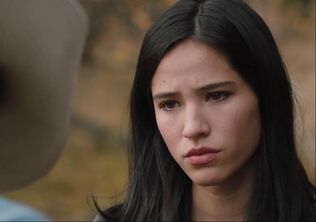 Screenshot Screenshot by Julian Spivey On Friday, July 3 Halle Berry announced during an Instagram Live video that she was considering playing a trans character. On Monday, July 6 she apologized and announced that she wouldn’t be playing the role. The Oscar-winning actress released a statement that said: “Over the weekend I had the opportunity to discuss my consideration of an upcoming role as a transgender man, and I’d like to apologize for those remarks. As a cisgender woman, I now understand that I should not have considered this role, and that the transgender community should undeniably have the opportunity to tell their own stories.” It’s a story we see probably a few times a year in different variations. Should this white American actress be playing a role originated in a comic as an Asian woman? Should this straight actor be portraying a gay character? And so on and so forth. I don’t have any answers. So, don’t be expecting to find any here. It’s not my job as a straight, white male to dictate what’s right and wrong for other people of different races, sexual identities or what have you. The only thing I’m qualified to tell you is that I don’t have a problem when women play men like we’ve seen successfully from Cate Blanchett in her Oscar-nominated performance as one of the Bob Dylans in 2007’s “I’m Not There” or Glenn Close in her Oscar-nominated performance as the title character in 2011’s “Albert Nobbs.” And Melissa McCarthy as the recurring role of former White House Press Secretary Sean Spicer on “Saturday Night Live” a few years ago … well, that was just freakin’ hilarious. I do have some questions. Everybody should know by now that white actors playing black characters, which would likely have to include blackface is wrong. It’s always been wrong, maybe it was once more accepted, but it’s always been wrong. Everybody should know by now that non-Asian actors and actresses as Asian characters is wrong. It only takes watching Mickey Rooney’s cringeworthy performance as Mr. Yunioshi in the otherwise terrific classic “Breakfast at Tiffany’s” to see that. Again, it was once commonplace for white actors to portray Asian characters, but it shouldn’t have been. That is what I know for sure. The questions arise in other portrayals of different people that we’ve seen more recently. Should Kelsey Asbille, an actress born to a Chinese father and an American mother, be playing a Native American on the hit Paramount Network drama “Yellowstone.” In 2017 she claimed to be descended from the Eastern Band of Cherokee Indians, but the tribe issued a statement saying it had no record of her and couldn’t find any evidence she was a descendant. Jeffrey Tambor won back-to-back Emmy Awards for his portrayal of Maura Pfefferman, a trans woman, in Amazon Prime Video’s “Transparent,” but should the role have gone to a trans woman instead of Tambor? Should straight actors like Eric McCormack and Eric Stonestreet be playing gay characters on television as both recently have respectively as Will Truman on NBC’s “Will & Grace” and Cameron Tucker on ABC’s “Modern Family,” both which wrapped their successful runs this spring? What about Latino and African-American actors portraying white founding fathers of the United States on the stage as in “Hamilton”? Where is the line drawn? Have we reached a point where actors and actresses should only portray characters that resemble themselves in the real world? Or is it a case by case thing where some instances are fine and others are not? That could potentially be confusing. Like I said, I don’t have the answers, only questions. If you have the answers or simply an opinion on the topic, I’d love to hear it. by Julian Spivey “Hamilton” made its non-theater premiere on Disney+ on Friday, July 3, but it’s been four years since the original Broadway cast of the Tony-winning musical say goodbye to the show. We’re going to take a look at what the stars of the show have been up to since taking their final “Hamilton” bow … and to be honest it doesn’t quite seem as if most of them have had the post-‘Hamilton’ opportunities actors who’ve been in something this pop culturally significant should’ve had. Lin-Manuel Miranda Played: Alexander Hamilton Lin-Manuel Miranda is the genius behind “Hamilton” as the show’s creator, composer, lyricist and star of the title role. Since his final bow as Alexander Hamilton, Miranda has unsurprisingly had the biggest post-‘Hamilton’ career of anybody in the cast. Shortly after he finished with “Hamilton” he wrote songs for Disney’s “Moana,” including the Academy Award and Golden Globe nominated Best Original Song “How Far I’ll Go.” In 2018, Miranda had a supporting role as Jack in the Disney film “Mary Poppins Returns,” alongside Emily Blunt. Miranda was nominated for a Golden Globe for his performance in the film. He also took up the Alexander Hamilton garb one more time for a charity performance in his home country of Puerto Rico after it was devastated by Hurricane Maria in 2017. This summer Miranda was supposed to have a supporting role in the film adaptation of “In the Heights,” which he co-created with Quiara Alegria Hudes and had his initial Broadway breakthrough with in 2008. The film has been pushed back to next summer. Leslie Odom Jr. Played: Aaron Burr Leslie Odom Jr. won a Tony Award for Best Actor in a Musical for his portrayal of Aaron Burr in “Hamilton” and actually beat out Lin-Manuel Miranda in that category. Many believed Odom to be the true powerhouse of the musical. His career post-‘Hamilton’ has been a bit more focused on music than acting with Odom Jr. having released two albums: 2016’s Christmas release Simply Christmas, which was re-released in 2017, and last year’s Mr. On the acting side of things, he has had supporting roles as Dr. Arbuthnot in Kenneth Branagh’s 2017 remake of “Murder on the Orient Express” and as abolitionist William Still in last year’s “Harriet.” Phillipa Soo Played: Eliza Hamilton Of all of the cast of “Hamilton” it’s Phillipa Soo who has stuck the most to Broadway performances post-‘Hamilton.’ In fact, it was very long at all after taking her final bow as Hamilton’s wife Eliza that she jumped into the lead role in “Amelie,” which officially opened on April 3, 2017 and was done by the end of May of that year. Most recently she appeared alongside Uma Thurman in the Broadway play “The Parisian Woman,” which ran from November 30, 2017 until March of 2018. She also had a role in the 2019 CBS military drama “The Code,” which only ran one season. Daveed Diggs Played: Marquis de Lafayette and Thomas Jefferson Multiple actors in “Hamilton” had dual (or should I say 'duel' - fine I won't do it again) roles, but none with as much stage time and gravitas as Daveed Diggs who absolutely owned the stage as both Marquis de Lafayette and Thomas Jefferson. He won the Tony for Best Featured Actor in a Musical for the dual role. Shortly after his “Hamilton” run he had a 10-episode supporting performance in ABC’s terrific sitcom “Black-ish,” as Johan, the younger brother of Tracee Ellis Ross’s Rainbow Johnson. He had supporting roles in the 2017 film “Wonder” and the 2019 film “Velvet Buzzsaw,” and got some independent film acclaim in 2018’s “Blindspotting,” which he not only starred in but also produced and co-wrote (with Rafael Casal, who co-starred with him). Diggs is currently starring in the TNT drama series “Snowpierecer,” which is based off the 2013 Bong Joon-ho film of the same name, alongside Jennifer Connelly. Christopher Jackson Played: George Washington Christopher Jackson, who commanded the stage as George Washington in “Hamilton,” has perhaps had the most job security of any working actor in the stage musical since it ended as he’s had a supporting role on the CBS legal drama “Bull” for four seasons now and the series has been picked up for a fifth. Jackson plays Chunk Palmer, a former college football star turned fashion stylist who is becoming a lawyer. In addition to his role on “Bull,” he also supplied the singing voice for the character Chief Tui in Disney’s “Moana,” singing songs written by his “Hamilton” co-star Lin-Manuel Miranda. Renee Elise Goldsberry Played: Angelica Schuyler Renee Elise Goldsberry’s performance as Angelica Schuyler won her a Tony Award for Best Featured Actress in a Musical. The veteran actress has been seen in multiple episode supporting roles as of late on great TV series like CBS’ “Evil” and NBC’s “Zoey’s Extraordinary Playlist,” and can be seen on Netflix’s “Altered Carbon.” She’s also had roles in Eli Roth’s 2018 film “The House with a Clock in its Walls” and Trey Edward Shults’ 2019 film “Waves.” She’s perhaps best known since her “Hamilton” days though for the hilarious performance as a Broadway star, not so far from real life, in a “Documentary Now” episode titled “Original Cast Album: Co-Op,” which is a wonderful parody of D.A. Pennebaker’s 1970 documentary “Original Cast Album: Company.” Jonathan Groff Played: King George III Jonathan Groff essentially was the comedic relief in “Hamilton” playing King George III in a manner of someone who’s breaking up with a loved one but believes indignantly they’ll return. Since Groff relinquished his throne as King George III he has starred in the critically-acclaimed Netflix psychological crime drama “Mindhunter” for two seasons, the first premiering in 2017 and the second in 2019. Groff has reprised his voice role as Kristoff in Disney’s “Frozen II,” which was released in November of last year. Anthony Ramos Played: John Laurens and Philip Hamilton Anthony Ramos played the tragic dual roles of John Laurens and Philip Hamilton in “Hamilton.” Since then he’s gotten engaged to his “Hamilton” co-star Jasmine Cephas Jones, who played Peggy Schuyler and Maria Reynolds. Ramos played the character of Mars Blackmon in Netflix’s “She’s Gotta Have It,” based on the 1986 Spike Lee film of the same name, for two seasons. He’s also performed in regional performances of Lin-Manuel Miranda’s “In the Heights” in the lead role of Usnavi de la Vega. Ramos reprised the role for the film version, directed by Jon M. Chu, that was supposed to premiere in June but has been delayed to June of 2021 due to the COVID-19 pandemic. Okieriete Onaodowan Played: Hercules Mulligan and James Madison Okieriete Onaodowan played the dual roles of Hercules Mulligan and James Madison in “Hamilton” and since taking his final bow has shared his time between the stage and the small screen. Onaodowan played the male lead of Pierre Bezukhov in the final month of Broadway’s “Natasha, Pierre & the Great Comet of 1812” in 2017. Since March of 2018 Onaodowan has been part of the cast of ABC’s drama “Station 19,” a spin-off of the popular “Grey’s Anatomy,” which follows the men and women of Seattle’s Fire Station 19. The show has aired three seasons thus far and has been renewed for a fourth. Jasmine Cephas Jones
Played: Peggy Schuyler and Maria Reynolds As mentioned previously, Jasmine Cephas Jones has gotten engaged to her “Hamilton” co-star Anthony Ramos. The two got engaged in late 2018 and have been together since 2015 when they were both in the Broadway musical. Jones has had supporting roles in a handful of films since her days on “Hamilton,” most notable with “Hamilton” co-star Daveed Diggs in 2018’s “Blindspotting” and in “The Photograph,” which came out earlier this year. On the stage she played the role of Roxanne in an Off-Broadway performance of “Cyrano” in 2019. In March of this year she released the EP Blue Bird. by Aprille Hanson Director: Thomas Kail Starring: Lin-Manuel Miranda, Leslie Odom Jr. & Phillipa Soo Rated: PG-13 Runtime: 2 hours & 40 minutes On July 3, America got a reprieve from the stress surrounding the COVID-19 pandemic thanks to the genius of Lin-Manuel Miranda. His iconic musical “Hamilton,” featuring the original theatrical cast from a 2016 performance premiered on Disney+. It has been five years since the play originally premiered at the Public Theater, Off-Broadway.
It’s safe to say most in the United States hadn’t seen “Hamilton,” specifically featuring the original cast and if the world were normal, it’s likely it would have premiered in movie theaters across the country. But instead, we all were swept up in the life of founding father Alexander Hamilton from the comfort of our living rooms and the timing actually couldn’t have been better. I’m happy to say I didn’t listen to most of the “Hamilton” soundtrack before watching the recorded stage performance. Of course I know the main hits by heart -- “Alexander Hamilton,” “My Shot,” “The Schuyler Sisters” -- but I was grateful to see this masterpiece play out with the actors, rather than just playing out the scenes in my own mind. Because of this, I did not realize the play had very little spoken dialogue, with the 2 hour, 40 minute run completely in song. It’s what makes this musical even more awe-inspiring, told entirely through hip hop and pop style songs with people of color playing most of the historic characters. The musical details Hamilton's life in two acts, along with how various historical characters influenced his life such as Marquis de Lafayette (Daveed Diggs), John Laurens (Anthony Ramos), Hercules Mulligan (Okieriete Onaodowan) and most prominently Aaron Burr (Leslie Odom Jr.) who will eventually cause his death. Hamilton quickly builds a name for himself through his passion for a revolution, becoming the right hand man for George Washington (Chris Jackson) and the eventual United States fights for independence from Britain. Amid all this, we see Hamilton’s personal life unfold when he meets the Schuyler sisters, Angelica (Renée Elise Goldsberry), Eliza (Phillipa Soo) and Peggy (Jasmine Cephas Jones) and his quick marriage to Eliza. In the second act, America has gained its independence and now the work of building a new country begins and intertwined with Hamilton’s work leading the Treasury Department, writing the majority of The Federalist Papers and serving in the first presidential cabinet, viewers see the heartbreak from both the death of his son from a duel and the strain an affair put on his marriage and public image. Miranda did what may seem impossible in the hands of someone else -- he brought history alive in a way that’s relatable and fun, but rooted in the spirit of how this country was founded. Yes, there’s a cabinet debate between Thomas Jefferson (also played by Diggs) and Hamilton, but it’s done in a rap-battle style. Yes, there’s a scene where Washington reveals his desire to step down as president, but with Jackson delivering a superb vocal performance that makes you feel the emotions of what that actually meant for the newly formed country. Yes, King George (Jonathan Groff) makes his predictions and speeches, but instead of a boring leader, he’s a total caricature and hilarious. The talents of Goldsberry, who blew viewers away on “Satisfied” and Soo, who broke everyone’s hearts on “Burn,” as leading ladies are pure magic. The themes of his own death haunting him, writing like he’s running out of time and never throwing away his shot is really the story of every person who had to fight to earn something important. Miranda weaved a story that America needed right now. It’s hard to really celebrate America with its systemic racism, unhinged leadership and a hardened society. But what “Hamilton” provides is a hope and understanding of why this country was founded -- freedom for all people. It’s about an immigrant who helped build a country that still exists today. And this spirit of America came alive in “Hamilton” and it’s worth celebrating. |
Archives
July 2024
|
